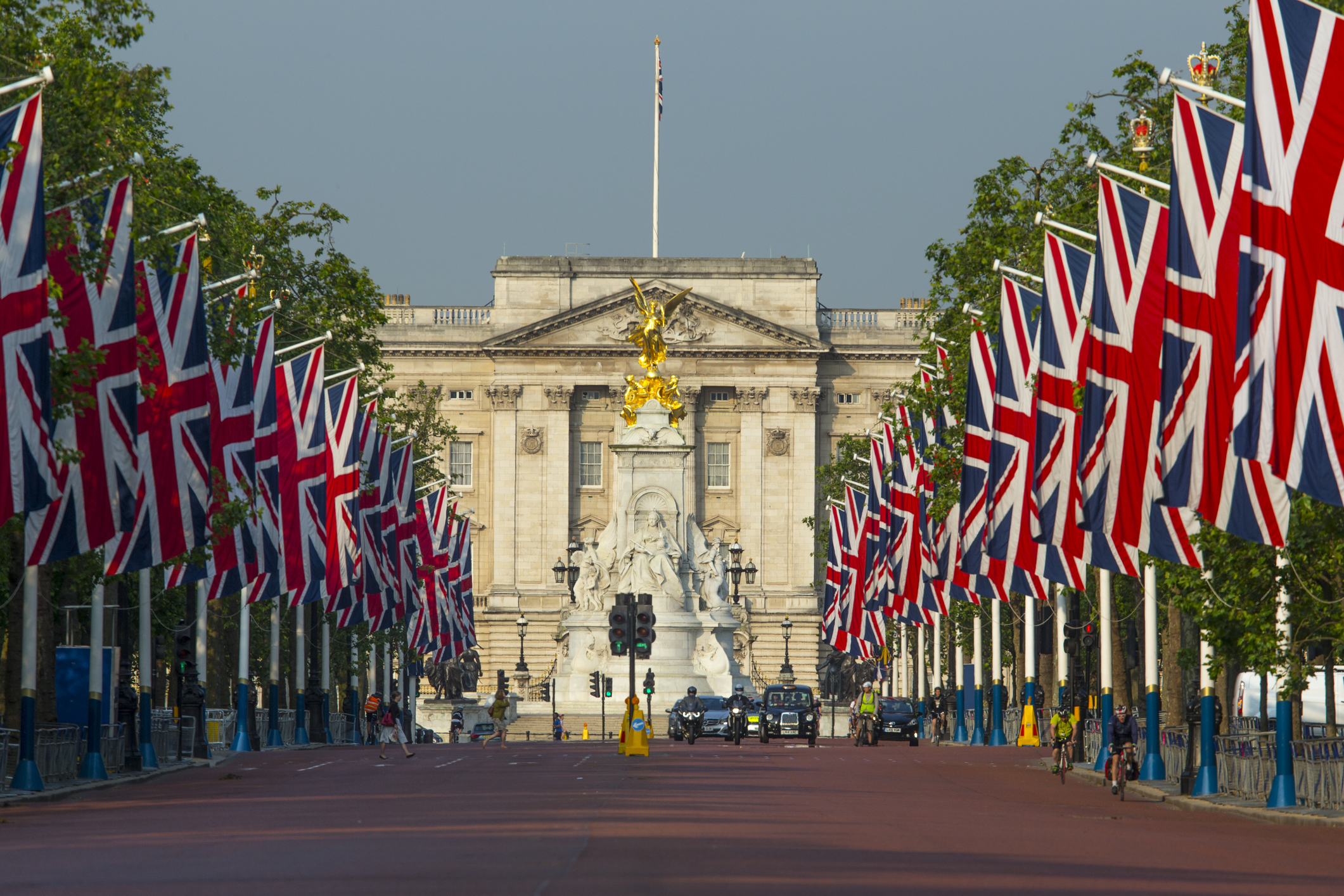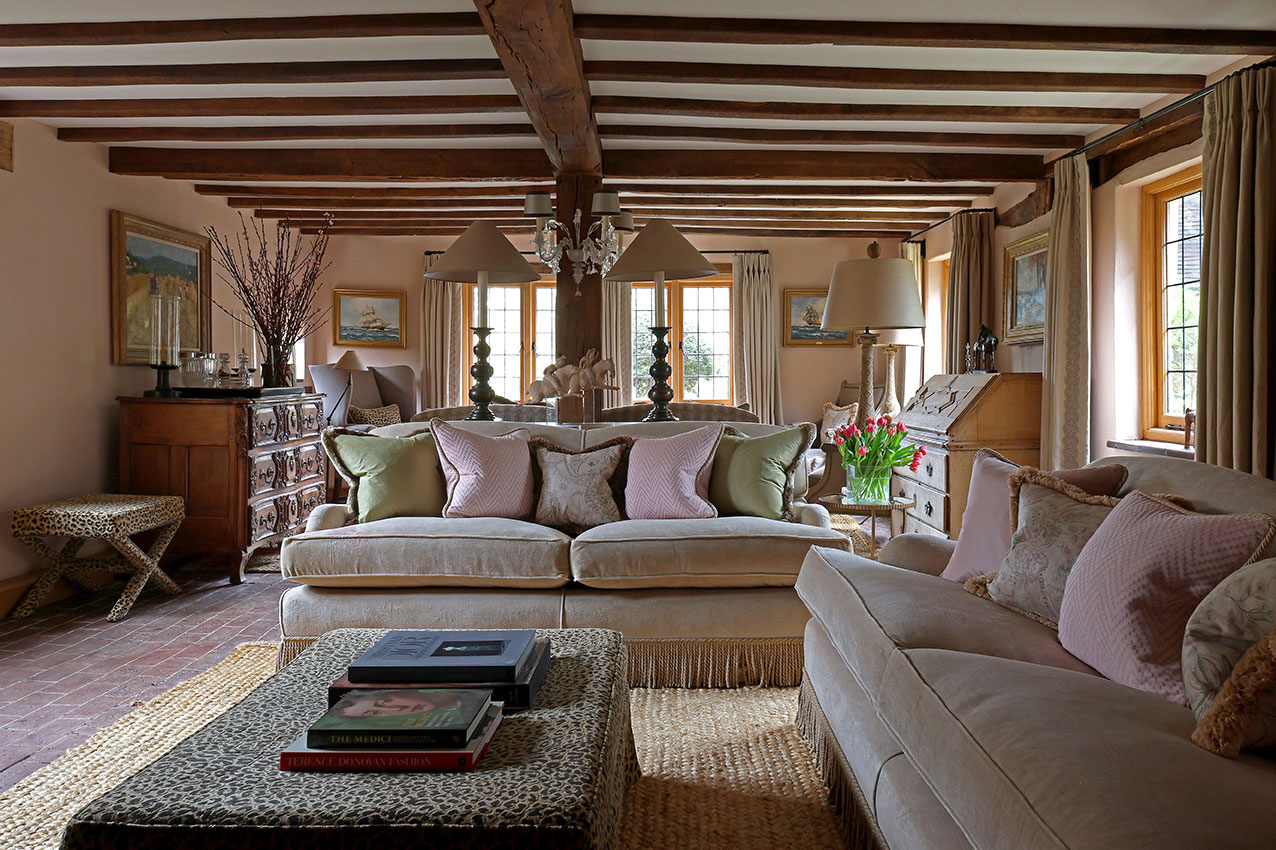Carla Carlisle: 'I spend half the day preparing for the apocalypse and half looking after chickens'
The death of one of the great people of the Civil Rights movement prompts Carla Carlisle to remember 'a man whose moral compass always pointed in the right direction'.
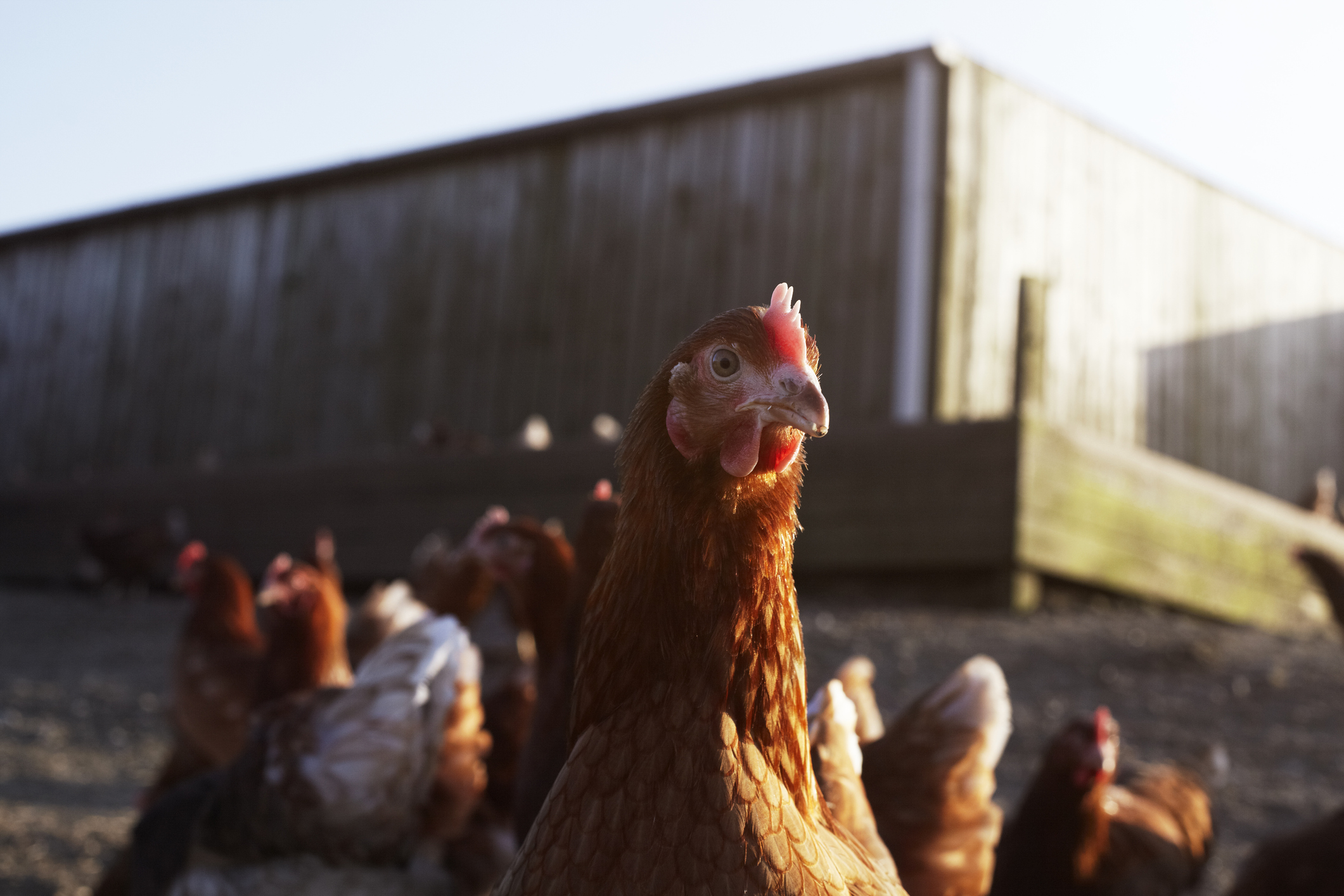

In this summer of 2020, I have whole days when I feel as if I’m living in a trance. I spend half the day preparing for the apocalypse of the second Covid-19 wave and half looking after chickens, moving last year’s ram lambs into fields with more grass and clearing out lean-tos on redundant farm buildings so that folks have somewhere to get out of the rain. In troubled times, you can justify your existence by simply shifting things around.
All the same, I get touchy when I open emails that start: ‘How’s life in the Wyken bubble?’ I’m tempted to write back that this farm isn’t surrounded by a sky-high fence that gives it immunity to a deadly virus, bypasses the plummeting economy and turns off Today with its reminders that the Government’s understanding of what comes next is as tenuous as our own.
I don’t snap back because, well, there is some truth to the ‘bubble’ thing. Country life still feels like a retreat, a kind of reprieve from the worst that can happen. Graphs show that fewer of us get coronavirus and, when we do, fewer of us die. Rural poverty is bleak, but it isn’t crammed into tower blocks. Country children live in a safer world than city kids and we like to believe that the country lanes protect them from the stench of racism, the reach of violence.
"When you spend four months in one place without leaving, you start to chew over things. Anything can trigger it: the last of the peonies, the wishbone drying in the kitchen window. For me, it was the little girl’s questions"
I thought of this a couple of weeks ago in the farmers’ market as I walked behind a mother and daughter on their way to see the lambs. In her sundress, straw hat and wellies, the little girl had the purposeful stride of a country girl, kicking the gravel as she walked and talked.
‘Why do they say black labs matter’? Don’t yellow labs matter?’ ‘They aren’t saying “black labs matter”, pumpkin. They’re saying “black lives matter”.’ ‘Why do they say that?’ ‘Because some black people have very difficult lives.’ The little girl looked up at her mother. ‘Where do the black lives live?’ Under my mask, I stifled a smile, but I thought: ‘Good question!’
Nowhere in the bustling market was a black face to be seen. When black faces do appear at the market or in the vineyard restaurant, they are usually from the American bases at Lakenheath and Mildenhall. The British countryside is a white world.
When you spend four months in one place without leaving, you start to chew over things. Anything can trigger it: the last of the peonies, the wishbone drying in the kitchen window. For me, it was the little girl’s questions, questions that coincided with news of the death of John Lewis in America. His was a life of dignity, grace and courage. A black life that mattered during the darkest days of America’s past.
Sign up for the Country Life Newsletter
Exquisite houses, the beauty of Nature, and how to get the most from your life, straight to your inbox.
The Civil Rights hero didn’t die of Covid-19, he died of a fast-moving cancer, but that he lived to reach 80 was itself a miracle. The third of 10 children, the son of sharecroppers in Alabama, he was a country child in the segregated South, where black lives were never safe and faced a long struggle to prove they mattered.
On the day of Lewis’s funeral, I walked down the drive to a farm cottage that houses a collection of books, photographs and papers on the Civil Rights movement in America. It seemed the right place to be. On the wall is a framed poster of a young Lewis kneeling with two others outside a segregated swimming pool in Cairo, Illinois, in 1962, shortly before his arrest. He was 22 years old and it was half a century before sportsmen would ‘take the knee’.
I took down his memoir, Walking With The Wind. The title came from his memory of crowding into a small wooden house with 15 of his cousins during a summer thunder-storm. The house began to shake and sway and planks of the wooden floor began to bend. The storm was pulling the house towards the sky. His aunt lined the children up and told them to hold hands. Throughout the storm, she guided them to the corners that were rising. As the wind shifted, so did the small cousins. The trembling house was held down by the weight of their small bodies.
"Three former presidents — one black, two white, one Republican, two Democrats — delivered stirring eulogies"
That experience marked Lewis throughout his long life, a life shaped by listening to Martin Luther King’s sermons on the radio as a young boy. He became a friend and a disciple of Dr King and, despite more than 45 arrests and beatings, including a cracked skull when, aged 25, he led the march across the bridge in Selma, Lewis never waivered from his belief in non-violence. Even at his lowest, shattered by the assassinations of his two heroes, Dr King and Robert Kennedy, he held fast to his belief that, to keep the house from being pulled down, we have to hold hands and move together. He stood back from the increasing militancy and separatism that would doom the Civil Rights movement.
The cottage looks out onto the arable plains of East Anglia. It’s a long way from the rural apartheid in the South of my childhood, where signs saying ‘Colored’ and ‘White’ were on water fountains and waiting-room doors. Thanks to the courage of people such as Lewis, those signs are history. But history can move forwards and backwards. I shared with Lewis the belief that President Obama’s election meant that America had become a post-racial country. That optimism has evaporated with the present occupant of the White House.
I mourn a man whose moral compass always pointed in the right direction. It’s not easy to see hope in these times of divisive rhetoric and partisanship but, like wishing on a wishbone, I look for signs. Three former presidents — one black, two white, one Republican, two Democrats — delivered stirring eulogies at the funeral of John Lewis. The weight of their words could save the trembling land in the storm that lies ahead.
I also find hope in a little girl who kicks the gravel as she strides forth. She’s asking questions. She’s not living in a bubble. Before you know it, this will be her world.
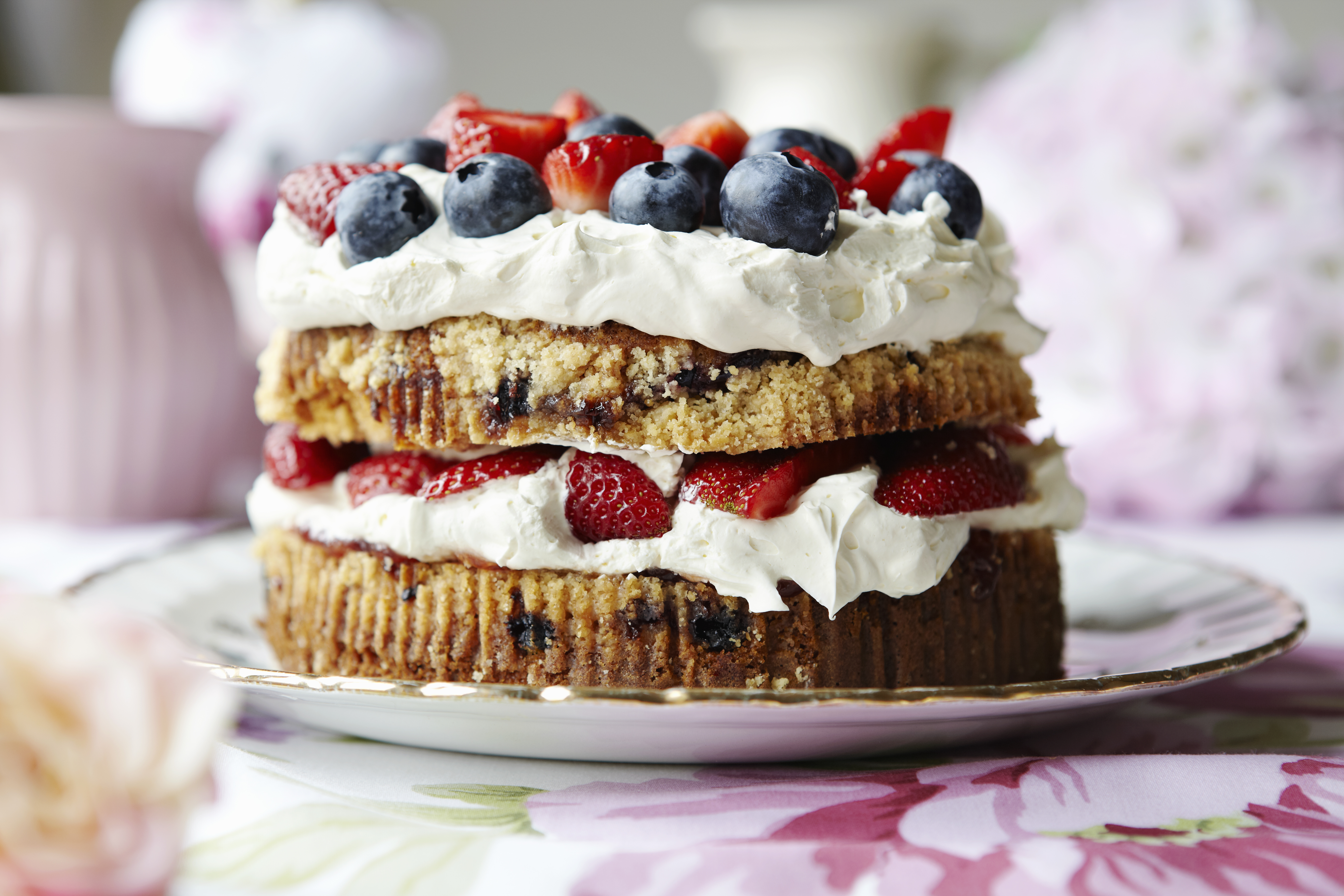
Credit: Debby Lewis-Harrison / Cultura / Getty
Rosie and Jim: 'I have baked myself out of my jeans'
Have our correspondents reached the peak? More like the trough.
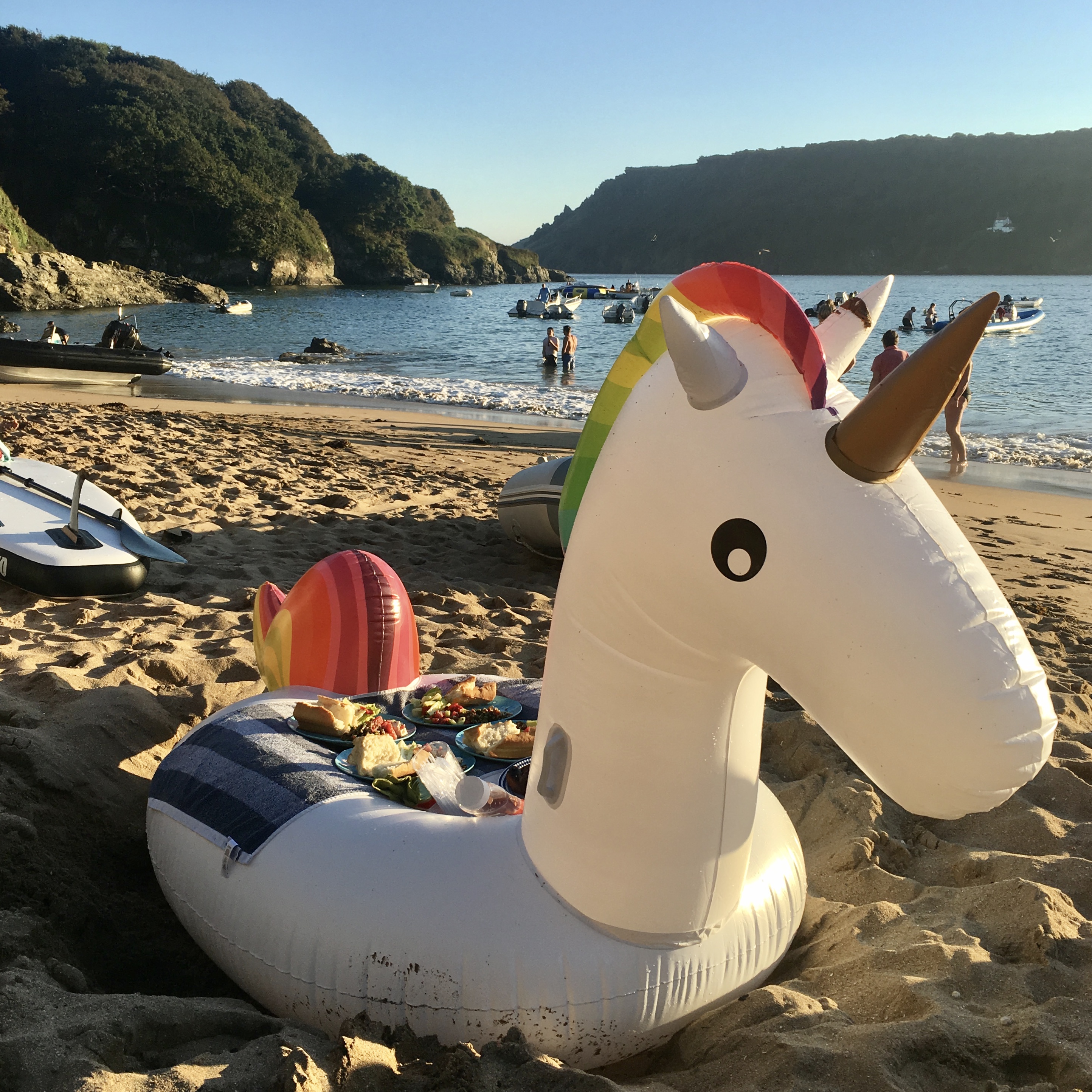
Rosie and Jim: The 10 rules of throwing the perfect beach picnic (N.B. You're going to need a unicorn)
This week, Rosie shares a series of tips which in now way reflect bitter personal experiences, while James reminds us
